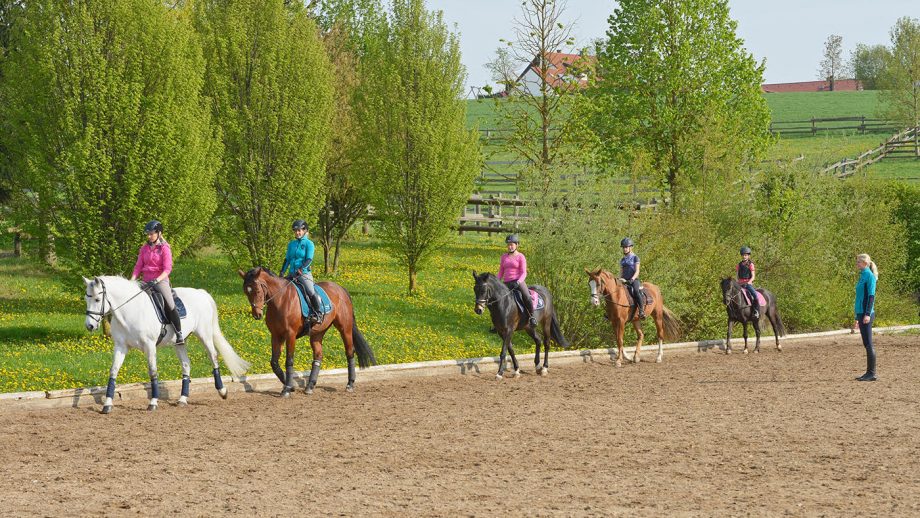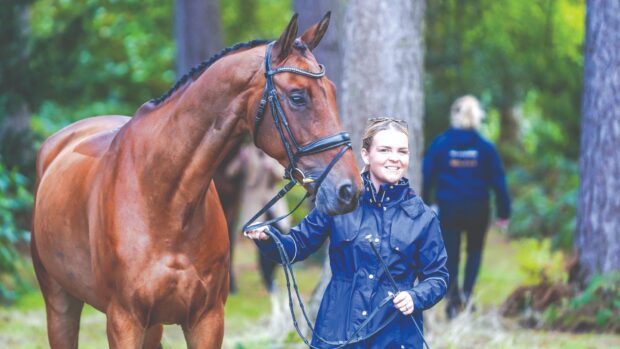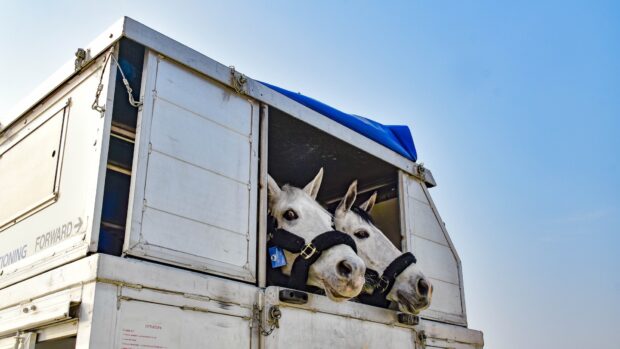The equestrian industry may have to reconfigure how it works to try to solve the skills gap and become sustainable, the British Horse Society (BHS) believes — as it launches a major fund to boost skills.
BHS chief executive James Hick chaired a panel discussion on workforce sustainability in the equestrian sector, at the National Equine Forum (NEF) in London today (3 March), during which he announced details of the society’s new career transition fund.
The scheme will offer training grants to people who have completed their BHS stage one, to allow them to progress to stages two and three, which the BHS hopes will fill a skills gap and improve the situation for staff and employers.
“Something we at the BHS are very much aware of, and H&H has covered, is the issue around attraction and retention of staff, and good employment across the sector,” Mr Hick told H&H. “From our perspective, and our approved riding schools and livery yards, there’s an equestrian-industry talent crunch. That means there’s an ever-increasing shortage of talent in our sector, at all levels.”
Mr Hick said the BHS conducted a survey at the end of January, to which 170 employers responded. This found that more than half the vacancies they had advertised in the past year, offering an average salary of £24,000 and crucial to running a successful equestrian business, went unfilled.
“This was across the board; coaches, grooms, ground workers,” Mr Hick said. “So we then talked to people working in the sector.”
There were 160 respondents to this second survey, asking what they looked for in an employer.
“And there was a mismatch,” Mr Hick said. “Employers were looking for industry experience, long hours and working weekends and evenings, and it’s hard physical work; the 160 workers in the sector said they were looking for something different. They’re looking for personal development, to be able to control their hours and know when they’ll be working, employment benefits — and often, work-life balance is more important than pay. That’s an important message. And underlying all this is that they’re looking for a good employer.
“Fundamentally, we’re going to have to reconfigure how we work to be able to align requirements, so people will come into the sector.”
Mr Hick said a positive thing is that since Covid, the number of people wanting to start or return to riding has increased, and many schools have waiting lists.
“That’s the great news, but the bad news is that there aren’t the qualified staff to meet the demand,” he said. “That’s a serious profitability issue, and we think we’ve got a responsibility to support the sector in addressing the shortage.”
Mr Hick added that the BHS research also indicated that people who work in the industry for two years tend to go on to longer careers within it, “so we’ve got to try to keep people”.
He added that the BHS has supported its approved centres with grants over the past two years of Covid, and is now taking a more “holistic approach” to supporting them.
“Our strategy now extends to riding schools and livery yards, and all those people who want a professional career within the sector,” he said.
The fund is aimed at anyone who has taken the BHS stage one, and will pay for training from BHS accredited coaches or at approved centres.
“And we very much hope it will attract more professional grooms and coaches into the sector as we run it this year, and hopefully in years ahead,” Mr Hick said.
“This is a job for life and if you’ve got your stage two or three, you’re eminently employable across the sector, and have so many life choices. Having that foundation gives you the earning potential, helps support people in long careers and to be employed by good employers.
“Similarly to how we supported people during the pandemic, the next part is to give back to the sector as a whole.”
You might also be interested in:

Riding schools in ‘national crisis’ over ‘unfit for purpose’ licensing system

More than half equestrian bosses still flouting employment law, survey finds
“It is quite unthinkable that in 2020 many employers are still choosing to ignore the law”

Employers urged to plan ahead for 2022 minimum wage rise

A ‘clear way forward’ to recognise grooms in horse sport

Subscribe to Horse & Hound magazine today – and enjoy unlimited website access all year round
Horse & Hound magazine, out every Thursday, is packed with all the latest news and reports, as well as interviews, specials, nostalgia, vet and training advice. Find how you can enjoy the magazine delivered to your door every week, plus options to upgrade your subscription to access our online service that brings you breaking news and reports as well as other benefits.




